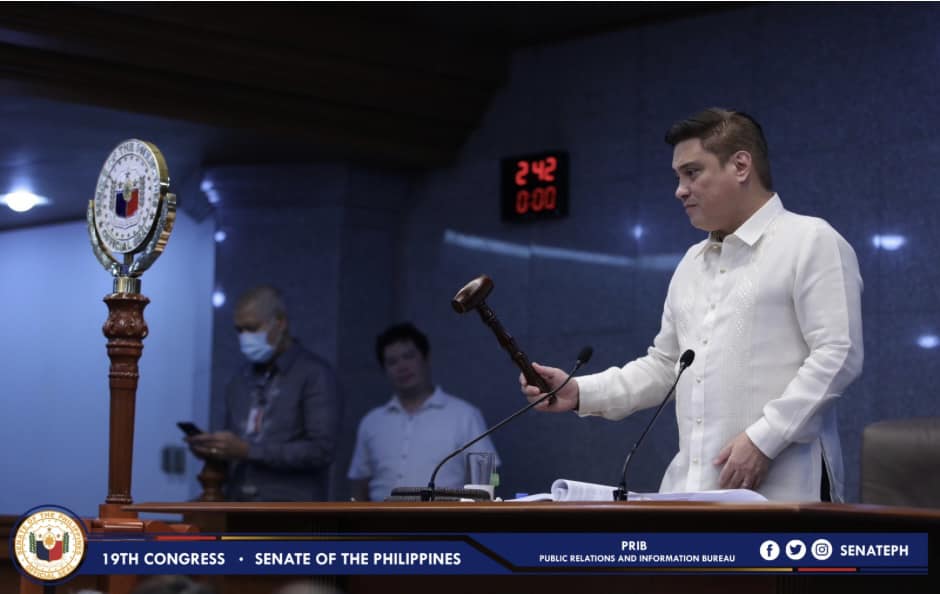President Ferdinand Marcos Jr.’s playbook for his term is slowly unraveling: He got himself lackeys for representatives and marionettes for senators so his plans for his family’s preservation will be a cakewalk.
Following Marcos’s certification as urgent of the Maharlika Investment Fund (MIF) Bill, both houses of Congress worked tirelessly for its passage despite widespread opposition from experts. The House swiftly granted approval mere hours after Malacañang's certification of the bill as urgent, while the Senate took a week to succumb. On May 31, the bill was approved by the Senate, and now only awaits the president’s go signal.
Much has been said about the dubiousness of the MIF, its irrelevance given the issues of the day, and even just the absurdity of its proposal amid the country’s economic situation. But recent developments surrounding the bill further spotlight just how much power Marcos wields in the government.
Marcos secured a resounding supermajority in both the upper and lower houses in the 2022 elections. His cousin, Martin Romualdez, is the speaker of the house, while Juan Miguel Zubiri, who ran under Marcos’ senatorial ticket, is the senate president. This supermajority in the House of Representatives ultimately paved the way for the MIF, a bill crafted by Romualdez and Marcos’ son, Sandro, to be approved without much contestation.
The legislative branch is supposedly part of the tripartite checks-and-balances system of the government. Under the doctrine of the separation of powers, the executive, Congress, and the courts are not allowed to have ultimate authority on the decisions of the land. But by establishing a supermajority in Congress, Marcos effectively monopolizes decisions in the laws to implement.
This is not a new feat of the Marcos administration as even during former President Rodrigo Duterte’s term, with 17 allies in the Senate, the legislative branch simply served to endorse the priorities of the executive branch without significant scrutiny. The Anti-Terrorism Act of 2020, for example, was crafted in the Senate and passed by the House, two days after Duterte certified it as urgent.
In the MIF’s case, not only were checks and balances within the government rigged, the participation of Filipinos has also been blatantly undermined. Lawmakers did not listen to what economists and groups had to say: Not only is the bill problematic, the mere proposal to create the MIF is not warranted. Funds that would finance an uncertain investment are better off allocated to projects that directly contribute to the development of the country.
Even Congress’s only show of responsiveness to the public’s concerns—repealing the provision that allowed the use of pension funds as seed money due to public outcry—is futile, as the Senate’s version would allow the Maharlika Investment Corporation to issue all kinds of bonds, which pension institutions may buy.
The conduct of the MIF’s final passage in the Senate is telling of how little importance the lawmakers give to their stakeholders. The bill was approved past midnight, not even giving the people a chance to witness the discussion and safeguard themselves from, quite literally, a thief in the night. Even before the voting started, Zubiri already told the media there will be a bicameral conference the next day to reconcile the bills’ passed by the Senate and the House. There was certainty, then, for the Marcos-ally that the MIF would pass the Senate without a hitch. This only reveals how the branch has become nothing more than a rubber stamp to Marcos’ policies.
The railroading of the MIF is not only a show of how much power Marcos has, but of how he is willing to use this to forward even the most contentious bills for his own benefit. The MIF places billions of funds at risk of corruption, what with the Marcoses and their cronies’ extensive resumes on the matter and the lack of proper safeguards in place.
This should, then, serve as a warning of the lengths this administration goes to follow the whims of the president—a foresight of the fast-tracking of his other pet bills to law.
One of Marcos’ priority bills mentioned during his 2022 State of the Nation Address, the mandatory Reserve Officers Training Corps (ROTC), has also been certified as urgent and was already passed by the House last December. The passage of this bill would only place the youth to harm given ROTC’s history of impunity, discrimination, sexual harassment, and even death, among others.
The National Land Use Act, which is already approved in the lower house, is also among the problematic pet bills of Marcos that would pave the way for the conversion of farmlands to subdivisions and other projects at the expense of agriculture and food security.
The passage of the MIF revealed the blueprint in which Marcos will proceed with his term. It is but a show of how the government is engineered to empower him rather than keep him in check.
The fight to win our other campaigns then is a steeper uphill battle but not impossible. After all, it was under the same surname and authoritarian tendencies that Filipinos bonded in the pursuit of justice and change. We will not let them get away with it. ●






